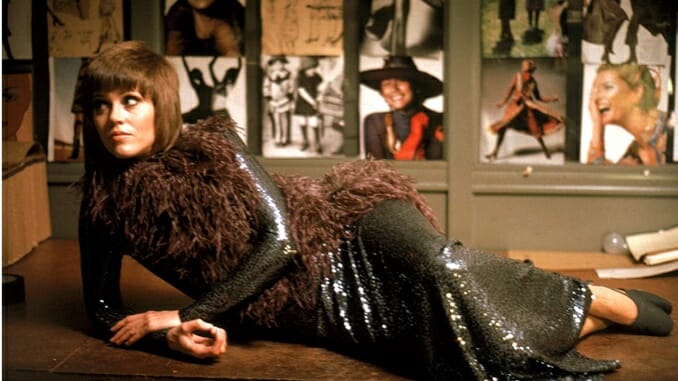50 Years Later, Klute Still Has Volumes to Say on Sex and Being Seen

The Criterion Collection added Alan J. Pakula’s Klute, one of the first among many 1970s paranoia thrillers to define the era, to their library back in 2019. A cursory analysis might conclude that Criterion’s intervention brought the film back into popular consciousness over the course of the year, but this simply isn’t true. The release helped, sure. But transgender women are owed the lion’s share of credit for the film’s resurgence after spending 2019 happily discussing it on Twitter. This is as much a matter of good taste as of preservation and curation, and most of all a telling example of how cinema sees people when society doesn’t. (Or won’t.)
Klute, of course, isn’t a trans film per se, or a film about trans women. It’s a film about sex work and sex workers that views both with a compassion and dignity absent even in cinema being made right now, as transgender voices gain increased volume and importance in contemporary culture. Sex work is the bridge between Klute’s lead, call girl Bree Daniels (Jane Fonda), and the trans critics whose appreciation helped usher in the film’s modern reassessment two years ago. Klute doesn’t require reassessment so much as contextualization for today, an updated read on how the film’s meaning has expanded now that it’s crept up on 50 years of age. Trans women pushed that contextualization single handedly via Twitter and elsewhere online.
“Sex work gives transgender women a way out,” says Willow Catelyn Maclay on an episode of Body Talk, her “ongoing series of conversations” with fellow trans critic Caden Gardner. “For some of us, we’re funding surgeries, for others it could be as vital as making enough money to keep from starving, but for girls like us it’s always an option. If you know trans women, chances are she, or her friends, have done, or are participating in sex work as a means of survival.” Maclay goes on to point out that it is Klute’s portrayal of sex work, scrubbed of any trace of moralizing, that trans women responded to throughout 2019, though she also notes that there are other reasons fueling that response—such as, in her case, the experience of once having existed in fully male environments.
This is meaningful given Klute’s masculine element, which forces women into vulnerable positions and clangs with Bree’s refusal to be made vulnerable unless by her own accord. This is her movie. Pakula makes a character study of Bree, and uses his title figure, Detective John Klute (Donald Sutherland), as a lens for exploring female agency and self-possession. It’s a wonder that the film is named after him at all given how much emphasis is placed on Bree. In Body Talk, Maclay cites a Pakula quote about that exact question. Critic Priscilla Page, whose 2016 essay “On Klute: Beneath The Sin, The Glitter, The Wickedness” predates the 2019 trans celebration of the film, cites a similar quote from screenwriter Andy Lewis. Both were apparently concerned people would confuse the film with cheese had they named it Bree. So it goes.
-

-

-

-

-

-

-

-

-

-

-

-

-

-

-

-

-

-

-

-

-

-

-

-

-

-

-

-

-

-

-

-

-

-

-

-

-

-

-

-








































